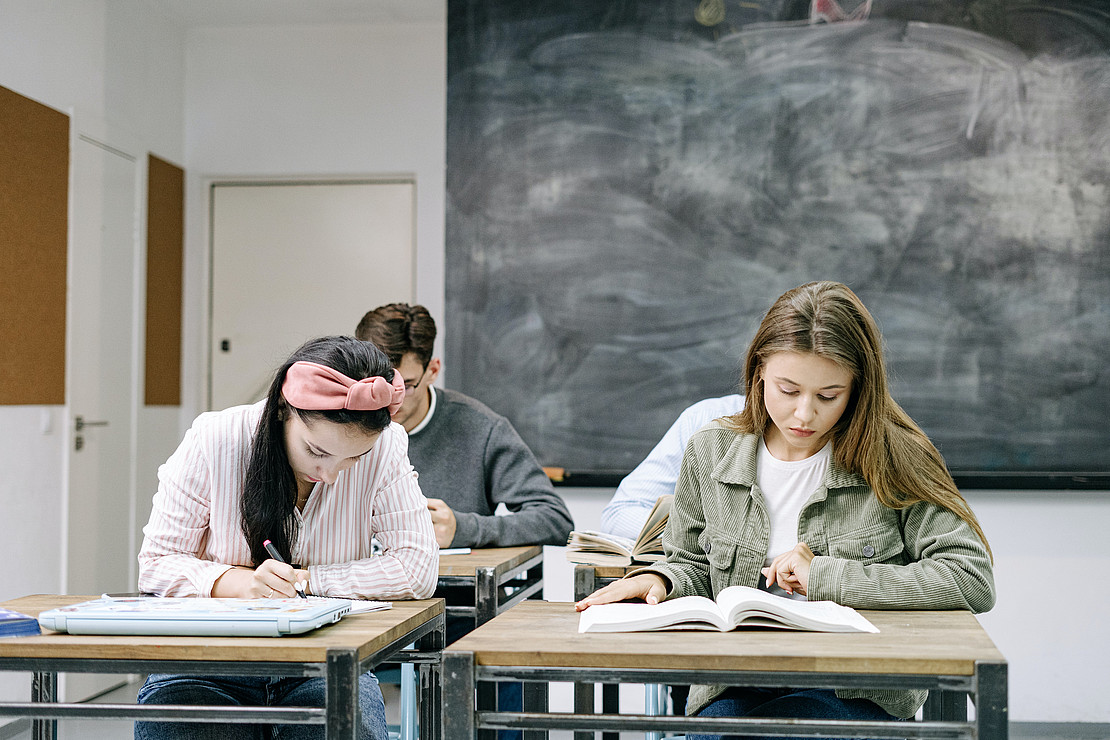This page contains automatically translated content.
All-day school: State of research and perspectives for the future
 Image: Samkov
Image: SamkovIn doing so, the researchers name key findings and point out gaps in knowledge that still exist. The brochure also provides a list of the literature evaluated and the research projects relevant in this context in all chapters. The authors focus on a total of six topics:
1. school development and learning culture at all-day schools in Germany
2. leadership and management in all-day schools
3. helping to shape change: Participation, readiness to innovate, and the new role of teachers in all-day schools
4. multiprofessional cooperation
5. extracurricular actors in all-day schools
6. individual development of students - effectiveness of all-day schools in Germany
"The aim of the research report now published is to record the existing knowledge and to provide impetus for further scientific work and for targeted support measures. At the same time, all those who are involved in all-day education and care on the ground should benefit from the expertise. For this transfer of knowledge, the brochure was prepared in a clear manner and each chapter was provided with concrete recommendations for action," explains Prof. Dr. Kai Maaz, Executive Director of the DIPF | Leibniz Institute for Human Development and Educational Information. The institute coordinated the creation of the handout. Also involved were the German Youth Institute, the Institute for School Development Research at the Technical University of Dortmund, the Justus Liebig University of Giessen, the Freiburg University of Education and the University of Kassel. The work was funded by the Federal Ministry of Education and Research.
From the University of Kassel, the Department of Social Relationships in Schools is participating. In cooperation with the Freiburg University of Education, the chapter "Individual Development of Pupils - Effectiveness of All-Day Schools in Germany" was written. "We are also looking at the effect of social engagement at school on the personality development of young people," adds Prof. Dr. Natalie Fischer, head of the department. This is being done as part of the project GTS-Bilanz - Qualität für den Ganztag.
Systematic approach, condensed core findings
The handout refers to published results from research projects and studies that have been conducted since the beginning of the investment program "Zukunft Bildung und Betreuung" (IZBB) in 2003. The IZBB is effectively the starting point for the increased expansion of all-day schools in Germany. The study period ends with the completion of the "Study on the Development of All-Day Schools" (StEG) in 2019, the largest study dealing with these issues. To search for relevant publications, the scientific team used the most important research databases in educational science, psychology, and sociology. Criteria for inclusion in the review included relevance to the thematic aspects of all-day education and the quality of the research design and data analysis.
The final chapter of the booklet once again condenses the core findings of the research and the conclusions for practitioners and academics. For example, it has been shown that high-quality extracurricular activities can have a positive impact on children's and adolescents' motivation, well-being, and, ultimately, grade development. However, it is also clear that many questions have not yet been sufficiently clarified and offer potential for further research. For example, it needs to be clarified how the entire social space of an all-day school location can be more closely involved in developments and how further potential for individual support of children and young people can be tapped.
The entire brochure on the research status can be found here:
www.dipf.de/de/forschung/pdf-forschung/steubis/gts-bilanz_broschuere
Further information on the project, within the framework of which the brochure was produced, can be found here:
www.empirische-bildungsforschung-bmbf.de/de/3046.php
Contact:
Natalie Fischer
University of Kassel
Department 01 - Institute of Educational Science
Tel: 0561-804-3628
E-mail: natalie.fischer[at]uni-kassel[dot]de